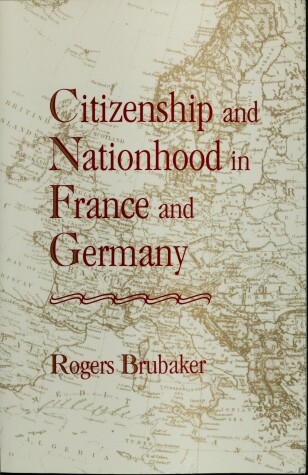The state, wrote Aristotle, "is a compound made up of citizens; and this compels us to consider who should properly be called a citizen and what a citizen really is". These are the questions, with their broad implications for the modern nation-state, that Rogers Brubaker addresses here. In a time when the flow of information, capital, and immigration has blurred the definition of the state, Brubaker's analysis of the origins and vicissitudes of citizenship in France and Germany reveals much about civic boundaries in the modern world. The difference between French and German definitions of citizenship is instructive - and, for millions of immigrants from North Africa, Turkey and Eastern Europe, decisive. Brubaker explores this difference - between the territorial basis of the French citizenry and the German emphasis on blood descent - and shows how it translates into rights and restrictions for millions of would-be French and German citizens. Why French citizenship is territorially inclusive, and German citizenship ethnically exclusive, becomes clear in Brubaker's historical account of distinctive French and German paths to nation-statehood.
Two fundamental legal principles of national citizenship emerge from this analysis, leading Brubaker to broad and original observations in the constitution of the modern state. Linking law, state, economy and culture across two countries and centuries, this book offers an explanation of forces that shape the modern world and delineate its future.
- ISBN10 0674131770
- ISBN13 9780674131774
- Publish Date 1 September 1992
- Publish Status Out of Print
- Out of Print 8 October 2008
- Publish Country US
- Imprint Harvard University Press
- Format Hardcover
- Pages 284
- Language English
